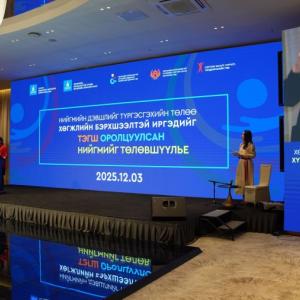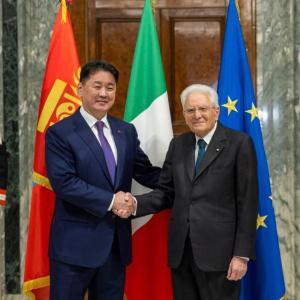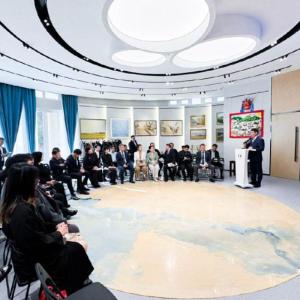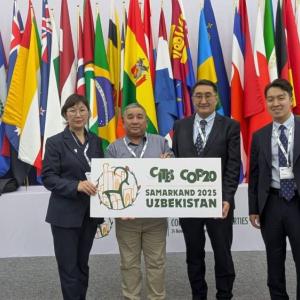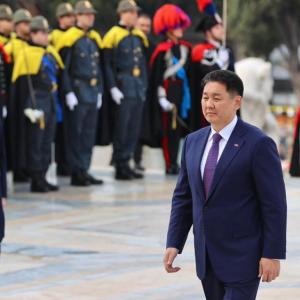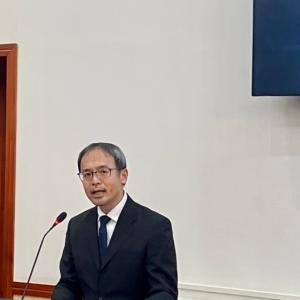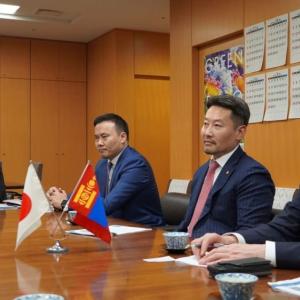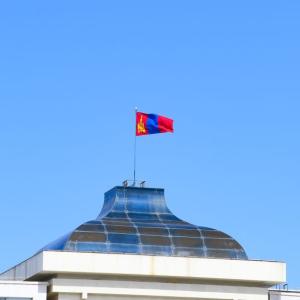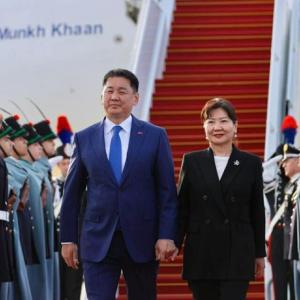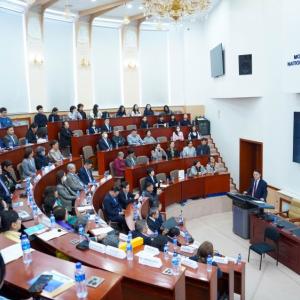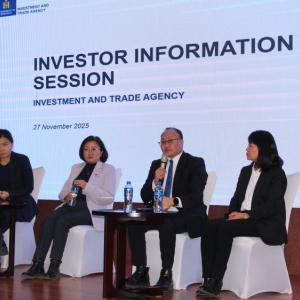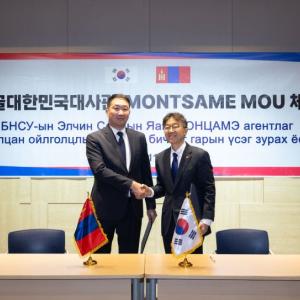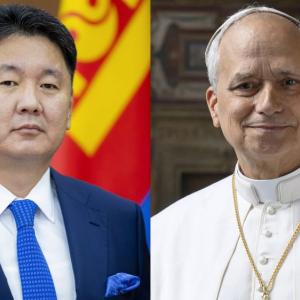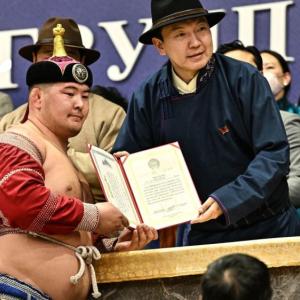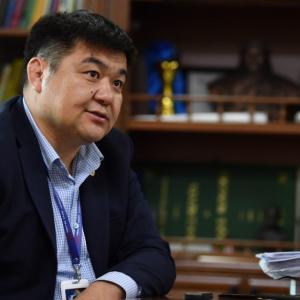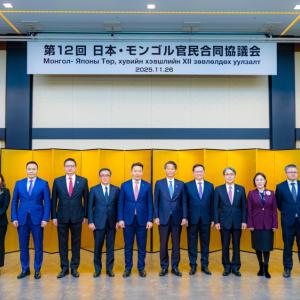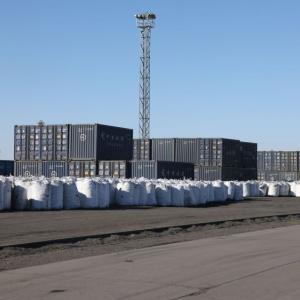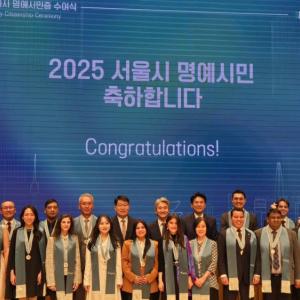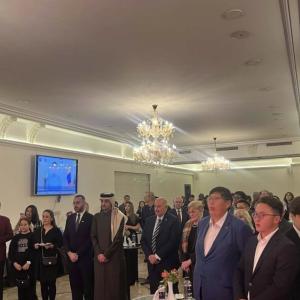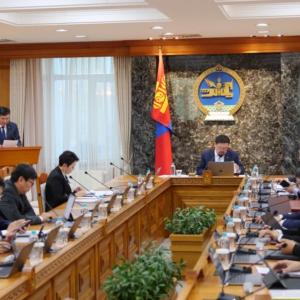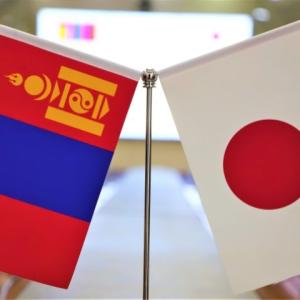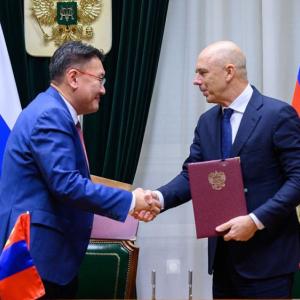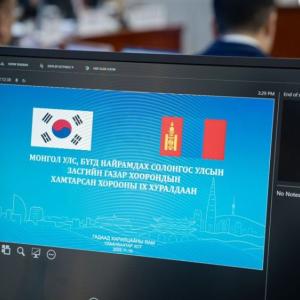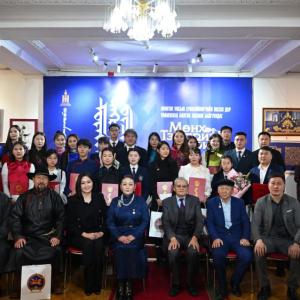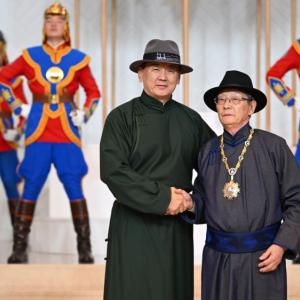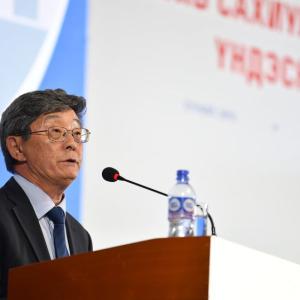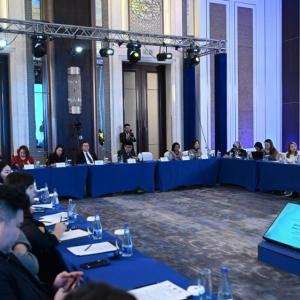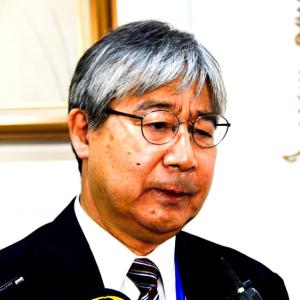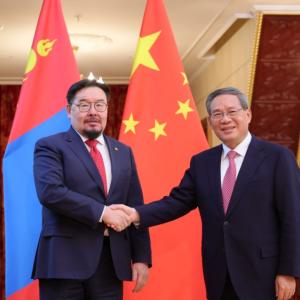The 10th Our Ocean Conference - A Defining Moment in Global Ocean Governance
Society
Busan, May 6, 2025 /MONTSAME/. The 10th Our Ocean Conference, held on April 28-30, 2025, in Busan, the Republic of Korea, was a defining moment for the future of the planet’s most vital natural resource - the ocean. Under the theme “Our Ocean, Our Action,” this historic event brought together over 2,600 delegates from more than 100 countries, including high-level representatives from governments, non-governmental organizations (NGOs), international groups, academia, and the private sector. The overarching message of the Conference was clear: the time to act on ocean conservation and sustainable marine management is now.
The ocean is not
only the concern of maritime nations alone, it is a shared lifeline that
affects the climate, economy, and survival of every country on Earth. It covers
more than 70 percent of the Earth’s surface and is home to over 80 percent of
the planet’s biodiversity. Yet, despite its vital importance, the health of our
oceans is rapidly deteriorating. Overfishing, marine pollution, and the impacts
of climate change have pushed marine ecosystems to the brink. It is estimated
that 90 percent of global fish stocks are now fully exploited, overexploited,
or depleted, while marine plastic pollution has reached alarming levels, with 8
million tons of plastic entering the ocean annually.
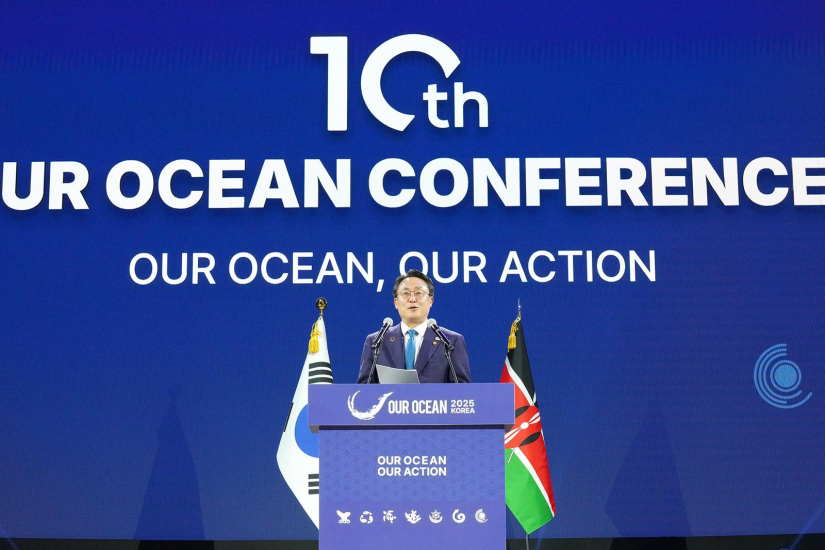
The Our Ocean Conference has been a
leading platform for generating meaningful commitments to preserve and protect
the oceans. Since its inception in 2014, the Conference has catalyzed over
2,600 voluntary commitments valued at approximately USD 160 billion. These
commitments have led to notable progress in various areas, including:
-
Marine Protected Areas (MPAs): Expansion
of MPAs to safeguard marine biodiversity;
-
Marine Pollution: Initiatives to reduce
marine plastic pollution and other contaminants;
-
Blue Economy: Promotion of sustainable
economic activities that utilize ocean resources;
-
Climate Change: Actions to mitigate the
impacts of climate change on ocean ecosystems;
-
Sustainable Fisheries: Efforts to combat
Illegal, Unreported, and Unregulated (IUU) fishing and promote sustainable
fishing practices.
The 10th edition
was of high importance, as it coincided with growing global recognition of the
urgent challenges that our oceans face, such as rising marine pollution, the
depletion of fish stocks, the impacts of climate change, and the accelerating
degradation of marine ecosystems. In 2025, world leaders converged with a
renewed sense of urgency, pledging collaborative actions aimed at safeguarding
the ocean, not only for the well-being of marine life but also for the survival
of humanity itself.
A special agenda of the 2025 Conference
centered on “Digital Oceans,”
exploring the integration of digital technologies in ocean governance. This
initiative aims at enhancing data collection, monitoring, and decision-making
processes, thereby facilitating more effective and systematic approaches to
achieving a sustainable ocean.
The Opening
Ceremony of the 10th Our Ocean Conference was a stirring and symbolic occasion,
featuring impassioned speeches and cultural tributes that set the stage for the
discussions ahead.
The Ceremony was
graced by notable dignitaries, with Minister
of Oceans and Fisheries of the Republic of Korea Kang Do-Hyung
delivering a powerful opening address. The Minister emphasized the importance
of international collaboration for marine sustainability and introduced the
“Korea Blue Action Plan,” a comprehensive initiative backed by a KRW 3.7
trillion investment, encompassing 76 pledges aimed at promoting ocean
sustainability. These pledges include expanding marine protected areas,
fostering eco-friendly fuels for vessels, and reducing marine plastic
pollution.
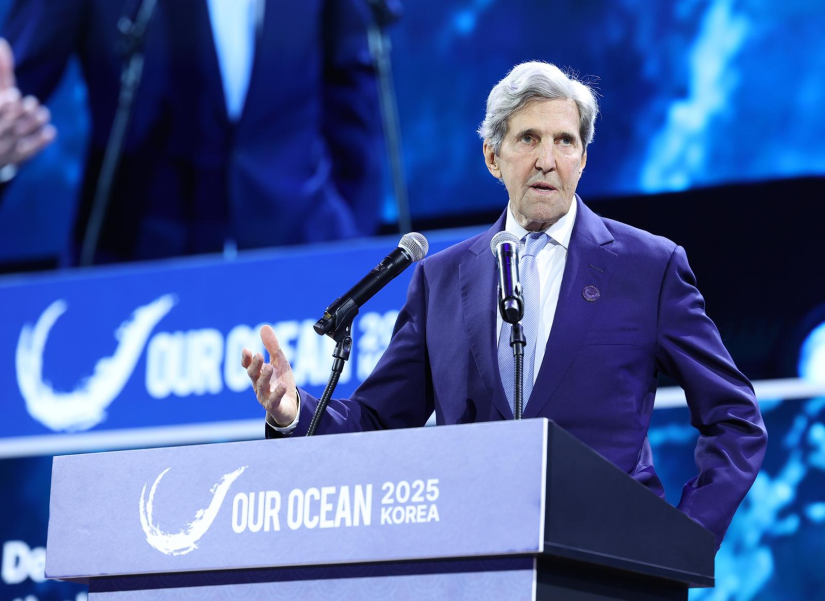
At the Opening Ceremony, the 68th U.S. Secretary of State John Kerry, who initiated the Conference series in 2014, delivered a compelling address, emphasizing the importance of sustained commitment to ocean conservation. In his speech, the former Secretary of State underscored the necessity of transforming pledges into tangible actions, noting, “We can’t just go to conferences and make a pledge and walk away and say, “Well, we have done our part.” We have to make sure that these pledges are implemented.”
Furthermore, Mayor of Busan Metropolitan City Park Heong-joon emphasized Busan’s commitment to sustainable ocean practices and highlighted the city’s role as a maritime hub in promoting international cooperation for ocean conservation. Mayor Park Heong-joon’s address underscored the importance of local governments in global efforts to protect marine ecosystems.
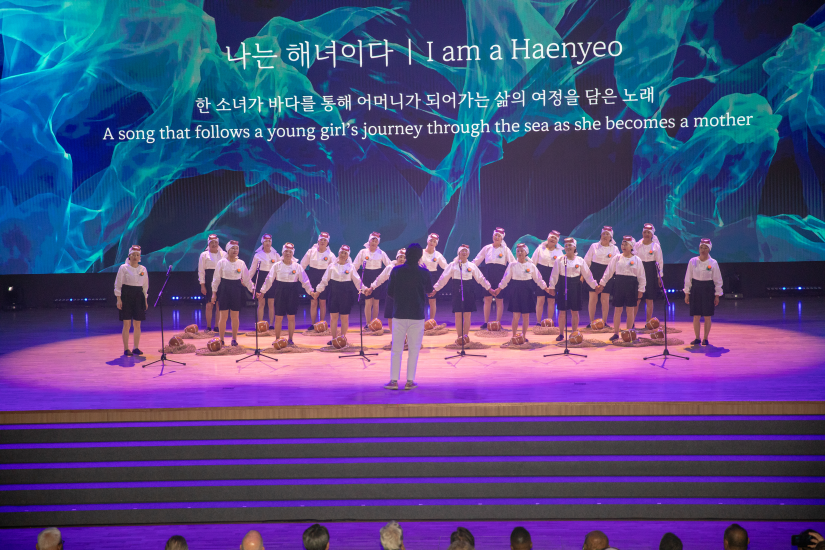
In addition, the
Opening Ceremony included a performance by the Hado Haenyeo Choir, composed of female divers from Jeju Island,
celebrating the deep cultural and spiritual ties that the Korean people share
with the sea, further underlining the importance of ocean preservation in the
country’s national identity. Notably, the Haenyeo tradition was inscribed on
the UNESCO Intangible Cultural
Heritage List in 2016.
As the host
nation of the 10th Our Ocean Conference, the Republic of Korea reaffirmed its
leadership in global ocean governance. Its status as a maritime power is
underscored by its strategic location along key East Asian sea routes, a robust
shipping industry, and deep cultural and economic ties to the ocean.
The Republic of Korea has long been committed to sustainable ocean management, with policies that prioritize the health of marine ecosystems while supporting the growth of its blue economy. The Korea Blue Action Plan serves as a comprehensive framework, outlining the country’s approach to protecting marine biodiversity, combating illegal fishing, and promoting sustainable fisheries. It also shows the importance of reducing marine pollution, particularly waste, and strengthening ocean-based climate resilience.
In 2025, the
Republic of Korea positioned itself as a global leader in using digital
technologies to strengthen ocean governance. The country has been at the
forefront of promoting the "Digital Oceans", a concept that harnesses
satellite data, artificial intelligence, and blockchain to boost marine
conservation, improve fisheries management, and reduce the environmental footprint
of maritime industries. At the Conference, South Korea unveiled a new national
initiative to develop an AI-powered system that enables real-time, accurate
decision-making for Korean vessels operating worldwide. This system will be
made accessible to other countries as well, encouraging greater international
cooperation in sharing ocean data.
South Korea’s
leadership in ocean governance goes well beyond its own shores. By actively
engaging in regional and global platforms like APEC and the East Asia Summit,
the country has helped shape international efforts to protect and manage the
world’s oceans. A key player in this work is the Korea Maritime Institute
(KMI), established in 1997, which serves as one of the country’s leading think
tanks for ocean research and policy. Through collaborations with organizations
such as the International Seabed Authority, KMI has contributed to promoting
the sustainable use and exploration of the ocean floor.
Hosting the 10th
Our Ocean Conference in Busan offered South Korea a unique platform to
highlight its strong commitment to ocean governance. With a special agenda
theme of “Digital Oceans,” the Conference focused on the role of digital
technologies in ocean monitoring and management. This emphasis aligns closely
with South Korea’s national strategies and reinforces the country’s leadership
in advancing innovative and forward-looking approaches to ocean stewardship.
During the
Conference, delegates announced 277 new commitments worth around USD 9.1
billion. These pledges covered six key areas of action: the ocean-climate
nexus, marine pollution, marine protected areas (MPAs), sustainable fisheries,
the blue economy, and maritime security. Notably, Panama pledged to improve
transparency in its fisheries sector, while USD 6 billion was directed toward
advancing blue economy initiatives. Several countries also committed to
ratifying the High Seas Treaty, a major step toward strengthening the
conservation and sustainable use of marine biodiversity beyond national
borders.
A 10-year Progress Report presented during
the Conference revealed that since 2014, 43 percent of commitments have been
fulfilled, 38 percent are in progress, and 17 percent have yet to be initiated.
While this reflects meaningful progress, the Conference also underscored persistent
challenges, particularly the need to expand marine protected areas (MPAs) to
meet the 30x30 target outlined in the Kunming-Montreal Global Biodiversity
Framework. Currently, only 8.3 percent of the ocean is designated as MPAs, and
just 2.7 percent falls under strict protection.
The 10th Our
Ocean Conference in Busan reaffirmed the international community’s dedication
to conserving and sustainably managing the world’s oceans. While celebrating
the progress achieved over the past decade, participants emphasized the urgent
need to accelerate action, strengthen accountability, and embrace innovation to
tackle the complex challenges ahead. The Conference laid a strong foundation
for continued collaboration and concrete outcomes, setting the tone for the
next Our Ocean Conference, to be held in Kenya in 2026.
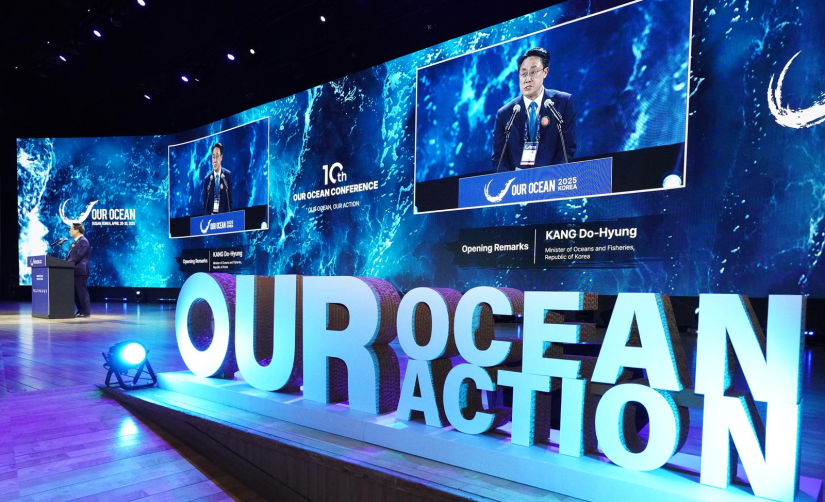
 Ulaanbaatar
Ulaanbaatar





